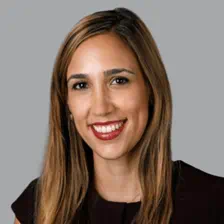Cushman & Wakefield's Integrated Facilities Management professionals strategically reduce operational costs and improve service consistency while ensuring compliance.
Our Integrated Facilities Management (IFM) end-to-end service offering enhances the workplace experience through an innovative delivery model that is fast, flexible, and scalable.
Today, we hear from Kristy Megaw, Account Director NAB about what it takes to be a Facility Manager (FM) and what a typical day looks like.
- What’s the first and most important thing on a FM’s To Do list for the day?
Getting organised for the day ahead. There is a vast range of services covered within the remit of a FM and with the development of Smart Buildings, data is helping make informed decisions around priorities of the day, especially if the FM’s portfolio is geographically dispersed.
- What’s your favourite thing about your role?
Relationships are still the baseline of the facilities industry, and those relationships are established on the ability to deliver premium service, products, and systems to clients. Creating a successful and beneficial partnership with a client is rewarding and seeing the outcomes this can create for an organisation is satisfying.
- What’s the most challenging part of your role?
Since coming out of the pandemic there is a real focus for the FM industry to create faster outcomes, to have a more global lens with higher technology solutions - but to also be more cost competitive, both from a management fee perspective, but also a ‘bottom line’ perspective. This pressure on the facilities leadership team is challenging, as it comes down the line from clients and commercial building owners.
- What’s the best career advice you have ever received?
Foster competency in your staff. People are the core of our business and the fostering of new professional coming into our field is vital. Offer mentorship, education opportunities including classes in building management, conflict resolution, and other soft skills. Bring your people on a journey which will create trust, ensure they feel valued and encouragement to take the next step in their career. It is not only personally rewarding as a leader, but key for the industry to move ahead.
- Sustainability is an important part of Cushman & Wakefield’s offering. How do we stand out from our competitors?
C&W is a valued sustainability services partner of the NAB client. C&W Sustainability has a long record of accomplishment on the NAB Account with delivering on time and on budget end-to-end sustainability, energy management, and performance reporting services for NAB. C&W are exceptional performers in enhance property portfolio management, reduce operating costs, and improve environmental performance of our clients, which provides not only financial benefit, but also ensures NAB meets ESG and annual reporting requirements.
- How do you and your team address the ever-changing needs of occupants?
There is a huge amount of change occurring in the Facilities Management sector. Smart buildings, hybrid workplaces, international standards, pandemic response plans, and sustainability targets are changing the face of the industry, and how FM’s do their job. It is important to remain agile, offer insights into industry trends and stay educated about these changes to ensure value to our clients. - What building management tools and technology couldn’t you live without?
Data trending dashboards such as Triana, is a key tool that I use daily. With over 700 buildings in NAB’s portfolio, this helps to easily identify any discrepancies in a building’s performance. - What’s the most asked question you get and how do you solve it?
How do you stay one step ahead of occupant’s requirements? - It is important to identify that as a FM, you manage people and cultivate relationships, almost as much as you manage buildings and facilities. Often people are surprised at is the amount of customer service required as a FM.
The management of occupant expectations is key, as is listening to occupant concerns and trying to understand the root cause of occupant queries. FMs can be seen as the first point of contact within a workplace, and you might be asked questions pertaining to areas that have no relation to you. You need to know your client, own the building as if it is your property and ensure the right processes are in place. If you have a large picture view of your scope and client organisation structure, you can easily direct enquires unrelated to the right area or facilitate a solution for the occupant.
- What advice would you give someone looking at a career in FM?
Be inquisitive. This field is about helping others as much as understanding building operations. Mistakes are a part of learning. Invest in creating relationships with your colleagues - if you do not know something, these are the people who can help you seek the answers. - If you could change or improve one thing in the world of FM, what would it be and why?
The Property industry, including the FM industry is male dominated. As I have mentioned, at its core, the FM industry is about people. Good FM practises significantly affects the health and wellbeing of the occupants, students, guests, or staff in the facilities we manage - for the better. A diverse workforce strengthens our ability to properly understand an increasingly diverse population and their changing needs. Supporting and encouraging more women into the facilities management, the industry will benefit from a greater diversity of insights and opinions. As established FM’s we can also make ourselves accessible to women to mentor, role model and share, to promote more diversity through the industry.
